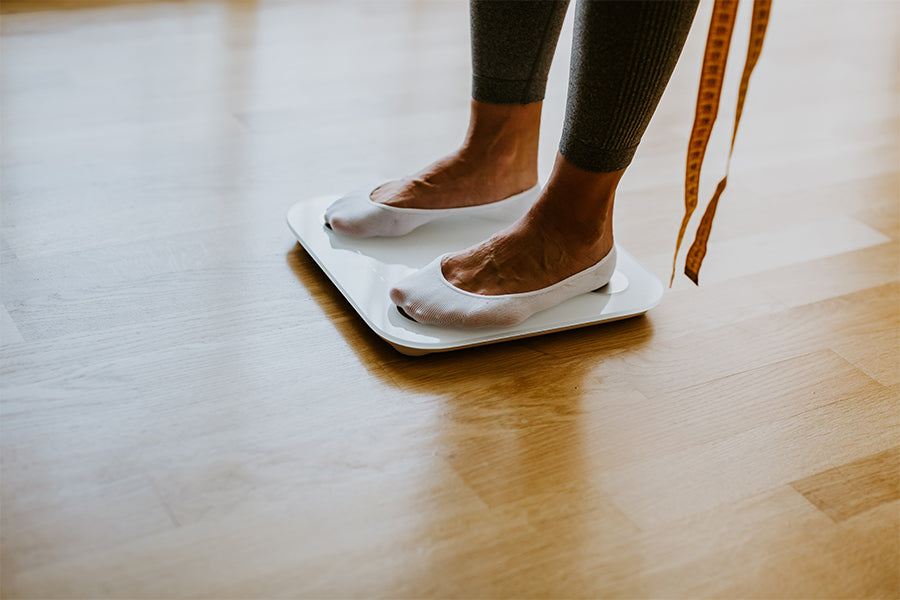You might be familiar with the nervous system from your elementary science class, a web of nerves in your body that takes stimuli to and from your brain in the form of electric signals; if this sounds sci-fi to you, you’re in for a ride.
There is another system in our body to communicate with our brain through chemical signals; this system is more complex and sensitive, known as the endocrine system.
The endocrine system makes and uses hormones the bloodstream carries to regulate the functions of cells and organs. You can suppose that the nervous system is the captain of the ship and the endocrine system is the crew members that make sure the ship stays a sail.
But this system is very sensitive and requires set parameters to work properly; when our body goes through trauma or changes, i.e., during puberty or menopause, our hormone ratio changes, making our body function slightly different. These changes may come in like not feeling happy, too much or too little appetite, or changes in body weight.
This article will discuss how hormones influence body weight, its causes, and how to reverse the effects.
Related Article: How to Lose Weight Naturally
Effects of Hormone Levels on Body Weight
Many people struggle with weight, often feeling stuck in a never-ending battle to lose those few pounds. But what if the real issue is a hormonal imbalance and not a lack of willpower?
Hormones can have a big effect on body weight, and people who struggle with weight often fight against their own bodies. So, how do hormones influence body weight?
The effects of hormones on one's body weight can be broken down into two categories.
First, hormones can affect how many calories the body burns. For instance, the thyroid hormone plays a part in the regulation of the metabolic rate of the body. When levels of this hormone are too low, the metabolic rate slows down, leading to weight gain.
Second, hormones can also affect how fat is stored in the body. For instance, when levels of the hormone insulin are high, the body receives the signal to store more fat from the hormone. People with insulin resistance or Type 2 diabetes often struggle to lose weight for this reason.
Keeping your hormones in check is a good thing to do if you're planning on losing weight, especially for women because they are more susceptible to hormonal changes.
Effect of Hormones on Women’s Health
It’s no secret that hormones influence a woman’s health and fitness. After all, they play a role in everything from regulating the menstrual cycle to influencing mood and energy levels. Women tend to have more body fat than men, and this is due to the hormone estrogen.
Estrogen promotes the storage of fat in the body, and it also makes fat cells larger. As a result, women are more likely to gain weight when estrogen levels are high.
Conversely, women are more likely to lose weight when their estrogen levels are low. This is one reason women often see fluctuations in their weight during different stages of their lives.
For example, many women gain weight during pregnancy due to the high estrogen levels in their bodies. However, estrogen levels drop sharply after giving birth, and many women find it easier to lose weight now.
In addition to affecting body weight, hormones also affect energy levels and mood. For instance, the hormone progesterone helps regulate mood but can also cause fatigue and irritability when levels are too high.
Ultimately, hormones play a complex role in women’s health and fitness, and it’s essential to understand how they can impact your body.
Related Article: 12 Weeks Weight Training Program for Women
Hormones That Influences Body Weight
Now that you’re familiar with how hormones and the endocrine system work together to influence our body weight, let's look at the major hormones that directly impact your body weight.
Leptin
We all know that feeling when we've eaten too many slices of cake or extra helpings at dinner. Our clothes feel tighter and sluggish, and we resolve to lay off the sweets for a while. What happens in our bodies when we overindulge? Part of the answer lies in leptin.
Leptin is a hormone that plays an important role in regulating body weight. When leptin levels are high, it signals to the brain that the body has enough energy and needs to reduce food intake. Conversely, low levels of leptin signal that the body needs to increase food intake to obtain energy.
However, disrupting this feedback loop from stress and traumatic incidents can lead to weight gain or loss.
Estrogen
As mentioned above, estrogen plays a key role in regulating body fat, especially in women.
Lower estrogen levels can increase appetite, cravings, and weight gain. High estrogen levels can lead to water retention and bloating, causing weight gain.
Fat tissue secretes estrogen. A high percentage of body fat can result in elevated hormone estrogen levels. This can make losing fat hard, so eating healthily and getting as little fat as possible is preferred.
Moreover, estrogen levels can fluctuate due to stress, diet, exercise, and medications. So if you're struggling to manage your weight, it might be worth checking your estrogen levels.
Insulin
Insulin, as mentioned above, can have a direct effect on our body weight. The most important substance in our bodies is insulin. Insulin is a hormone that helps regulate blood sugar levels and is essential for good health.
Not surprisingly, insulin levels can have a significant effect on body weight. When insulin levels are too high, it can cause the body to store more fat, leading to weight gain.
On the other hand, when insulin levels are too low, the body may start to break down muscle tissue for energy, resulting in weight loss. Therefore, maintaining a healthy insulin balance is crucial for people trying to manage their weight.
Fortunately, there are many things that people can do to keep their insulin levels under control. Eating a healthy diet and regular exercise are two of the most important steps. By taking these measures, people can help ensure that their bodies are functioning at their best.
Cortisol
Cortisol is a stress hormone that's released by the adrenal glands. It's sometimes called the "fight or flight" hormone because it helps you deal with stressful situations.
Cortisol levels usually rise during times of stress, and they return to normal when the stressful event is over. However, your cortisol levels may stay elevated if you're constantly stressed. This can lead to several health problems, including weight gain.
The relationship between cortisol and body weight is complex. Cortisol can promote weight gain in several ways. For example, it can increase appetite or make you crave high-calorie foods.
It can also increase abdominal fat storage. In addition, cortisol can interfere with insulin production and metabolism, leading to increased blood sugar levels and weight gain.
Cortisol levels can have a big impact on body weight. If you're struggling with weight gain, it's crucial to understand how stress may affect your hormones. Reducing your stress levels may help you normalize your cortisol levels and reduce your risk of weight gain in the future.
Lifestyle and Diet Affect Hormones
Many people don't realize that the choices they make in their everyday lives can profoundly affect their hormones. For example, eating a diet high in processed foods and sugar can cause blood sugar levels to spike, increasing the stress hormone cortisol.
Chronic stress can also increase the hormone cortisol, which can contribute to weight gain, anxiety, and sleeplessness. On the other hand, a healthy diet with plenty of fruits, vegetables, and protein can help keep hormone levels in check.
In addition, exercise has been shown to reduce stress levels and improve overall health, which can help keep hormones balanced.
By making simple lifestyle changes, it is possible to have a significant impact on hormone levels.
Related Article: Some Good Habits That Can Enrich Your Lifestyle
FAQs
1. What lifestyle can factors influence hormone levels and cause weight gain?
Many different lifestyle factors can influence hormone levels and cause weight gain, such as:
Poor Sleep: Sleep deprivation can disrupt hormones that regulate appetite, leading to increased hunger and food cravings.
Stress: Chronic stress can raise levels of the hormone cortisol, which can lead to weight gain.
Unhealthy Diet: A diet high in processed foods, refined carbohydrates, and added sugars can cause hormonal imbalances that lead to weight gain.
2. How can I treat hormonal imbalances that are causing weight gain?
There are many different ways to treat hormonal imbalances that are causing weight gain, such as:
Medications: Certain medications can help regulate hormone levels and treat conditions that cause weight gain.
Lifestyle Changes: Making lifestyle changes, such as getting enough sleep, managing stress, and eating a healthy diet, can help treat hormonal imbalances and promote weight loss.
Supplements: Taking supplements, such as omega-3 fatty acids, magnesium, and probiotics, can help treat hormonal imbalances and promote weight loss. Consult a doctor before including any supplements into your lifestyle.
3. What are some common hormonal imbalances that can cause weight gain?
Many hormonal imbalances can cause weight gain, such as:
Hypothyroidism: It occurs when the thyroid gland doesn’t produce enough of the hormone thyroxine, leading to slow metabolism and weight gain.
Polycystic ovary syndrome (PCOS): This is a hormonal condition that affects women and can cause irregular periods, excess hair growth, acne, and weight gain.
Cushing’s Syndrome: This condition occurs when the body is exposed to high hormone cortisol levels, leading to weight gain, especially around the midsection.
4. When should I see a doctor about my weight gain?
Usually, the weight change due to hormones is drastic, and it can be 10 to 30 pounds gained or dropped within a couple of months. If you’re gaining or losing weight despite lifestyle changes and think it may be due to a hormonal imbalance, it’s important to see a doctor. A doctor can help diagnose the cause of your weight gain and recommend treatment options.
Take Away
Though hormones seem to play a role in weight gain and obesity, more research is needed on how they influence body weight. However, we know that they are essential regulators of energy balance and that disruptions in their levels can lead to weight gain.
Therefore, it is vital to maintain a healthy lifestyle to keep these hormones balanced. Eating a nutritious diet and regular exercise will help keep your hormones regulated and may help prevent obesity.
So, stop stressing over a few pounds and try a more relaxed approach; the more your brain is stressed, the more your weight machine will weigh. Take control of your hormones and get slimmer quicker.
Reading List
TRENDING ARTICLES
Article Sources
- Liu, G., Liang, L., Bray, G. A., Qi, L., Hu, F. B., Rood, J., Sacks, F. M., & Sun, Q. (2017). Thyroid hormones and changes in body weight and metabolic parameters in response to weight loss diets: the POUNDS LOST trial. International journal of obesity (2005), 41(6), 878–886. https://doi.org/10.1038/ijo.2017.28
- Pennings, N., Jaber, J., & Ahiawodzi, P. (2018). Ten-year weight gain is associated with elevated fasting insulin levels and precedes glucose elevation. Diabetes/metabolism research and reviews, 34(4), e2986. https://doi.org/10.1002/dmrr.2986
- Luglio H. F. (2014). Estrogen and body weight regulation in women: the role of estrogen receptor alpha (ER-α) on adipocyte lipolysis. Acta medica Indonesiana, 46(4), 333–338.
- Sitruk-Ware R. (2018). Non-clinical studies of progesterone. Climacteric : the journal of the International Menopause Society, 21(4), 315–320. https://doi.org/10.1080/13697137.2018.1463982
- van Rossum, C. T. M., Hoebee, B., van Baak, M. A., Mars, M., Saris, W. H. M., & Seidell, J. C. (2003). Genetic variation in the leptin receptor gene, leptin, and weight gain in young dutch adults. Obesity Research, 11(3), 377–386. https://doi.org/10.1038/oby.2003.51
- Vicennati, V., Pasqui, F., Cavazza, C., Pagotto, U., & Pasquali, R. (2009). Stress-related development of obesity and cortisol in women. Obesity, 17(9), 1678–1683. https://doi.org/10.1038/oby.2009.76
- Apa psycnet. (n.d.). Retrieved October 8, 2022, from https://psycnet.apa.org/record/2010-21826-023





























